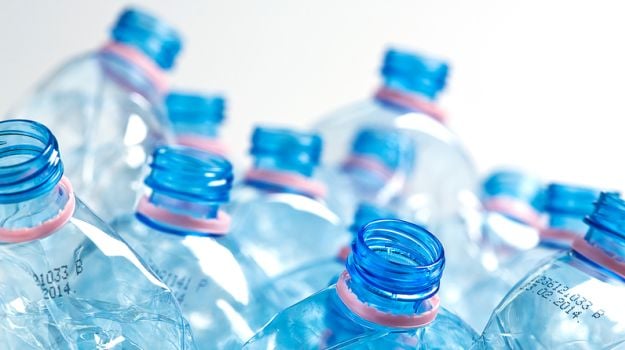Drinking Water From Plastic Bottles During Pregnancy May Harm Your Baby

Pregnancy is a special moment in everyone’s family. There’s nothing like the joy of having a baby. But it is also the time for the pregnant woman to be very mindful of what to eat and drink. There are various factors that can affect the development process of your baby if you are not careful, leading to the onset of future diseases as well. It is no hidden fact that almost everything we eat and drink today come loaded with chemicals, and on top of that we also stay in a highly populated environment. All these factors are not only harmful for your health but that of the baby too. We often fail to pay close attention to the food we pick up or the groceries we bring home, taking it for granted that they will be good. Even something as basic as drinking water can affect your health.
According to a recent study conducted by The Endocrine Society based in Washington DC, pregnant women drinking from plastic water bottles could be driving up their risk of having obese babies. The researchers found that the chemical bisphenol A (BPA), a hormone disruptor, is linked to an unborn child’s increased risk of obesity. When the child is exposed to BPA, they become less sensitive to a hormone responsible for controlling appetite.
Experts admit they are not surprised by the results, and warned of the need to be aware of environmental factors that can lead to increased susceptibility of obesity.

What is BPA?
Bisphenol A is an organic synthetic chemical compound that is commonly used in making certain types of plastic. As such it is found in a variety of food containers, including polycarbonate plastic water bottles and can linings. It is a colourless solid which is soluble in organic solvents, and to some extent is soluble in water as well. This chemical can interfere with the endocrine system (a collection of glands that produce several hormones) by mimicking estrogen, one of the main sex hormones found in women.
Research indicates BPA exposure is nearly universal. More than 90 percent of people tested in population studies had detectable levels of BPA, and compounds produced when it is metabolised by the body, in their urine.

The Research Study on BPA
Researchers of the study found that mice born to mothers exposed to BPA were less responsive to the hormone leptin, which is sometimes called the satiety hormone. Leptin helps inhibit the appetite by reducing hunger pangs when the body does not need energy. The hormone sends signals to the hypothalamus region of the brain to suppress appetite.
Senior author Dr Alfonso Abizaid, of the Department of Neuroscience at Carleton University in Ottawa, Canada said, “Our findings show that bisphenol A can promote obesity in mice by altering the hypothalamic circuits in the brain that regulate feeding behavior and energy balance.”
“Low level prenatal exposure to BPA delays a surge of leptin after birth that allows mice to develop the proper response to the hormone. BPA exposure permanently alters the neurobiology in the affected mice, making them prone to obesity as adults.”
To examine how BPA can encourage the development of obesity, the researchers fed pregnant mice BPA in their food. The mice were exposed to doses of BPA that are lower than levels deemed safe by the US Food and Drug Administration and Health Canada. Once the mice gave birth, the researchers gave their offspring injections of leptin at various intervals and then examined their brain tissue and analyzed their blood to gauge the response to the hormone.

Other pregnant mice were not exposed to any chemicals or were exposed to an estrogen chemical called diethylstilbestrol (DES), so their young could be compared to those born to mice that were exposed to BPA.
“This study improves our understanding of how BPA can disrupt the endocrine system in a manner that raises the risk of obesity in animals,” said Dr. Abizaid.
Harmful Effects of BPA
“Since BPA has also been linked to obesity in humans, people need to be aware that environmental factors can lead to increased susceptibility to obesity and cardio-metabolic disorders,” said Dr. Abizaid.
A report released in October 2016 claimed that plastic bottles contain hormone-disrupting chemicals that can cause cancer, diabetes, ADHD and autism. Yet they are found in thousands of everyday products, ranging from plastic and metal food containers, to detergents, flame retardants, toys and cosmetics. These chemicals are responsible for scores of illnesses – costing the US an astonishing $340 billion in health-related costs each year, the NYU Langone report read.
The most common illness due to endocrine disrupting chemicals is neurological – including attention-ADHD, autism and loss of IQ.
[“source-ndtv”]
